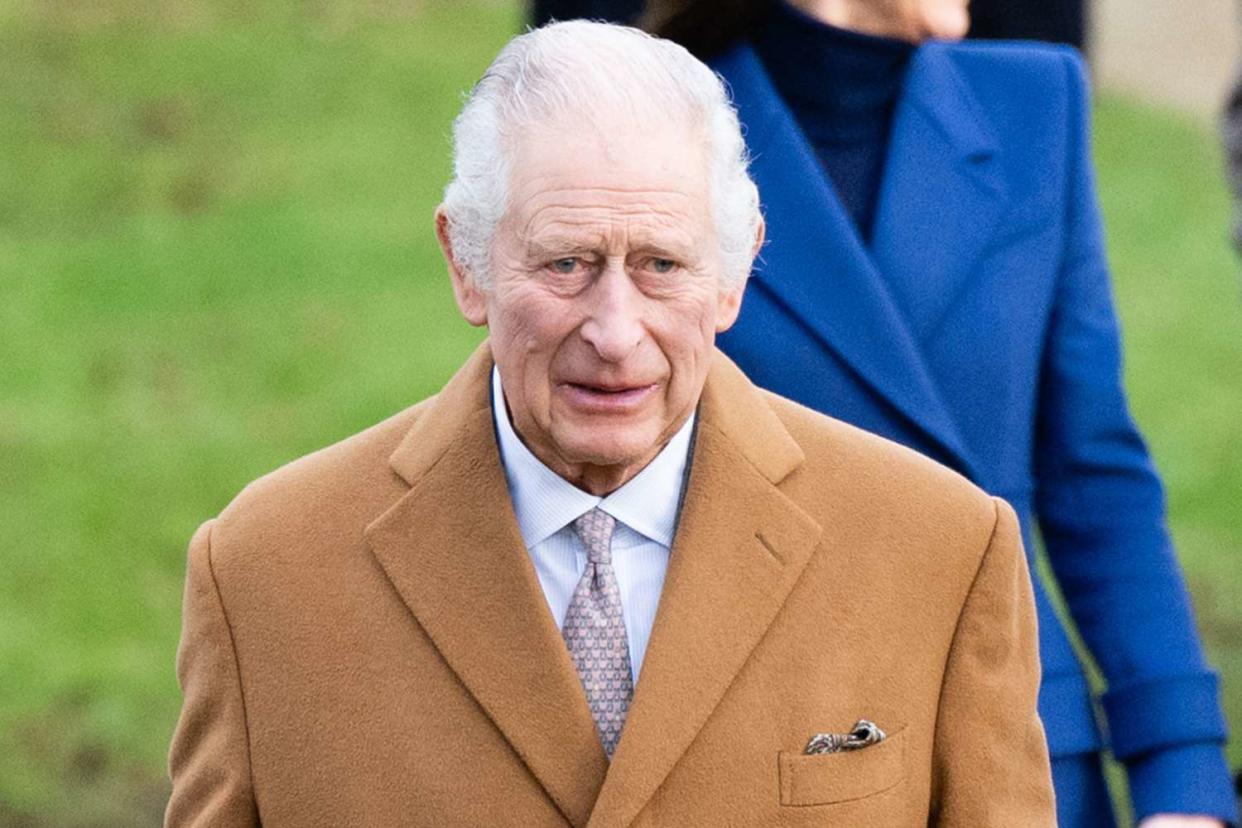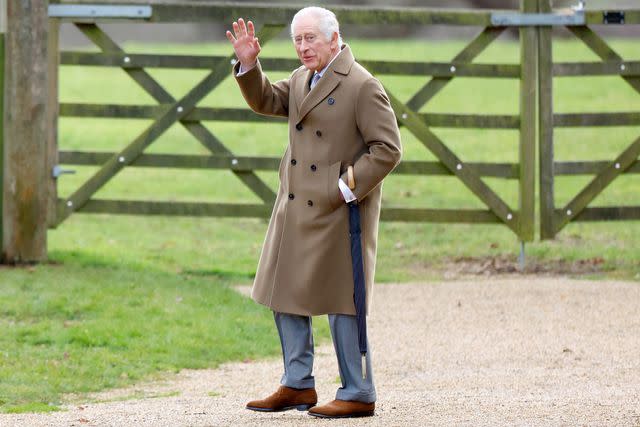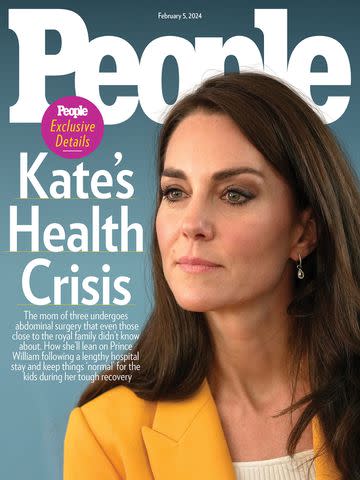King Charles Admitted to London Hospital for Surgery on Enlarged Prostate
PEOPLE understands that the King visited Kate Middleton, who is recovering from abdominal surgery, at the hospital ahead of his "corrective procedure"

Samir Hussein/WireImage
King Charles at the Christmas Morning Service at Sandringham ChurchKing Charles has arrived at the hospital to undergo a procedure to treat an enlarged prostate.
On Friday, Charles, 75, was photographed arriving with Queen Camilla at the private London Clinic, the same hospital where Kate Middleton is recovering from abdominal surgery.
PEOPLE understands that the King visited the Princess of Wales, 42, in the hospital ahead of his own surgery. On Jan. 17, Kensington Palace announced that Kate had undergone a "planned abdominal surgery" the previous day.
According to U.K. newspaper The Telegraph, Charles left Clarence House just after 8:30 a.m. local time on Friday, having returned to London the previous day ahead of the procedure.
"The King was this morning admitted to a London hospital for scheduled treatment," Buckingham Palace confirmed in a statement Friday. "His Majesty would like to thank all those who have sent their good wishes over the past week and is delighted to learn that his diagnosis is having a positive impact on public health awareness."

Max Mumby/Indigo/Getty
King Charles on the Sandringham estate earlier this monthRelated: Why King Charles Disclosed His Diagnosis While Kate Middleton Chose to Keep Hers Private (Exclusive)
Buckingham Palace announced on Jan. 17 that Charles would head to the hospital the following week for a “corrective procedure” to treat the benign condition.
“In common with thousands of men each year, The King has sought treatment for an enlarged prostate. His Majesty's condition is benign and he will attend hospital next week for a corrective procedure,” the statement said. “The King’s public engagements will be postponed for a short period of recuperation.”
A royal source told PEOPLE that King Charles would be capable of fulfilling his constitutional requirements and duties during this time. It's understood that the King wanted to share his diagnosis to encourage men who may be experiencing symptoms to get checked. According to the National Health Service of the United Kingdom, benign prostate enlargement is common in men over age 50 and is usually not a serious threat to health.

TheImageDirect.com
King Charles leaves RAF Marham on the way to Sandringham on Jan. 19.Related: King Charles Reveals Treatment for Enlarged Prostate After Kate Middleton's Hospitalization News
As monarch, the status of Charles' health is of great importance. And his decision to highlight his diagnosis has already made an impact: His announcement last week prompted a 1,000% increase in searches about prostate enlargement on the U.K.’s National Health Service website.
“It was sensible to be more open about it, as otherwise, people might have thought the worst,” a palace insider tells PEOPLE exclusively in this week’s issue.

King Charles was recently seen driving to the royal family's Sandringham estate in Norfolk with Queen Camilla, 76, on Jan. 19, and the couple attended church on the Sunday before the palace announcement. The day after Buckingham Palace announced that the King was seeking treatment for an enlarged prostate, Queen Camilla briefly spoke about her husband’s health during a stop in Aberdeen, Scotland.
“How is His Majesty?" Lord Lieutenant of Aberdeen Dr. David Cameron asked the Queen moments after she arrived at the Aberdeen Art Gallery on Jan. 18. Queen Camilla visited to open the new “Safe Space” in alignment with her longtime work of supporting victims of domestic violence.
"He's fine, thank you very much. Looking forward to getting back to work," she replied.

ANDREW MILLIGAN/POOL/AFP via Getty Images
Queen Camilla arrives at Aberdeen Art Gallery on Jan. 18.Can't get enough of PEOPLE's Royals coverage? Sign up for our free Royals newsletter to get the latest updates on Kate Middleton, Meghan Markle and more!
As King Charles recuperates, it’s unlikely that Prince William will be tapped for additional duties as heir to the throne. Prince William, 41, is the Prince of Wales, a Counsellor of State and the regent of his father’s reign as heir to the throne. According to the House of Commons Library, a regent would be appointed “if a monarch succeeds to the throne before the age of 18, or if a monarch becomes permanently incapacitated due to ‘infirmity of mind or body.’ ”
Activation of the provision has been rare, and the future King George IV was the most recent Prince Regent from 1811 to 1820 when his father King George III was ill.
For more People news, make sure to sign up for our newsletter!
Read the original article on People.
